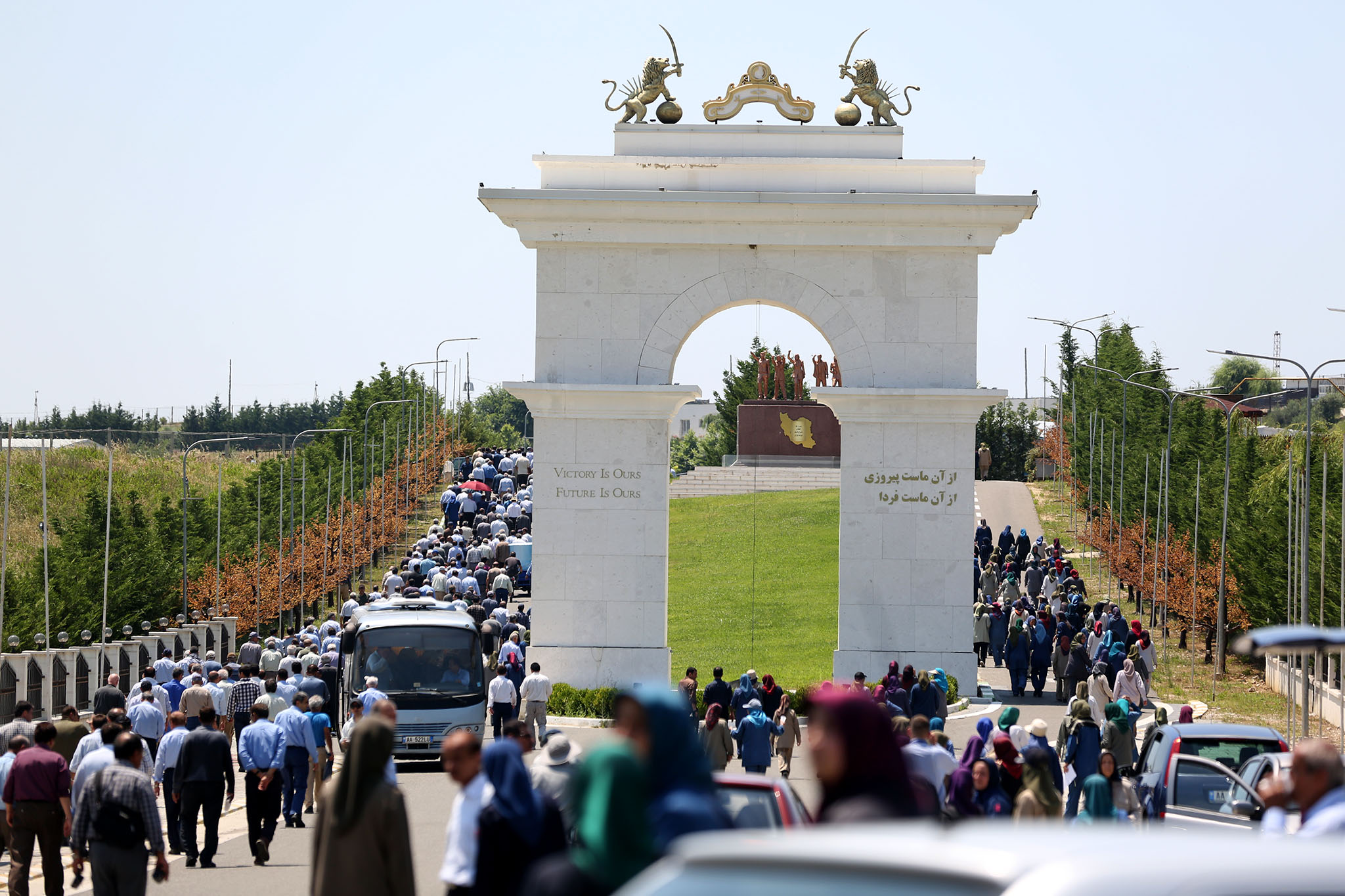Vučić has been navigating a delicate path to avoid becoming the ‘odd one out’ in Europe, standing as the only EU partner yet to fully align with the Union’s foreign and security policies. Despite advocating for Serbia’s EU accession, Vučić has also maintained amicable ties with the Kremlin while attracting investments from China. Analysts view this strategic maneuvering by Vučić and Serbia as reminiscent of Yugoslavia’s post-World War II tactics, positioning itself between two superpowers.
Though Serbia initiated accession talks with the EU a decade ago, progress has been slow, with only 2 out of 22 chapters closed thus far. Serbia’s balancing act between the 2 ‘Worlds’, the Western camp—represented by the EU and the USA — and the Eastern sphere — encompassing Russia and China—is calculated and aimed at maximizing benefits from both sides.
According to Researcher Arjan Dyrmishi, Serbia aims to capitalize strategically on the EU integration process for economic opportunities. However, he adds, ‘Serbia also seeks to maintain neutral security relations while remaining tethered to China and Russia in terms of security.’
Along the same lines is the Researcher Geron Kamberi, who sees Serbia’s positioning between ‘two fires’ as quite rewarding. ‘Serbia has aimed to capitalize on the EU’s financial incentives through a series of structural reforms and internal capacity-building efforts, which have tripled its capabilities and bolstered its strength over the years’.
On the other hand, Kamberi suggests, Serbia is employing a strategy of ‘quiet diplomacy’ by refraining from sanctioning Russia to maximize financial gains from China and political benefits from Russia when opportune.
This strategy is proving to be quite lucrative for Serbia.
While Vučić is set to receive an energy support package from Brussels worth 165 million Euro (in addition to what is part of the Economic Investment Plan and potential allocations from the Western Balkans Growth Plan), in May 2022, he also signed favorable terms on Russian gas through an agreement with Putin.
Regarding international relations, there are several telling examples.
The signing of joint declarations between the Western Balkans and the EU for the advancement of the region on one hand, and the conditioning of these declarations with the non-recognition of achieved agreements on the other; or the commitment to cooperation and the establishment of a common regional market through the Berlin Process on one side, while also pursuing trade relations with Russia on the same day.
‘In foreign policy, one of the tactics of diplomacy is the diplomatic embrace of states that may be considered erratic in their behavior and regional policies,‘says the researcher Geron Kamberi.
According to him, regional policy in the Western Balkans will be characterized by the speed at which states aim to join the EU, as well as by maintaining dynamic relations with the USA.
‘Naturally, the EU will seek to swiftly entice Serbia to align its foreign policy positions with those of the EU through offers of membership,’ Kamberi argues.
The problem, according to the Researcher Arjan Dyrmishi, lies in Serbia’s refusal to recognize Kosovo, making it challenging for Serbia to distance itself from Russia and China, which offer assurances that Kosovo will not be recognized in international relations.
‘Inherited Diplomatic Aptitude: A Legacy from Former Yugoslavia’
This notion of ‘sustainable instability’ is also echoed in the statements of the Serbian president.
‘We must acknowledge the fact that we have Western investments and that we are on the path to Europe. It’s absurd when someone suggests that we should sever these ties, or all connections with Russia. That’s not the Serbia we aspire to be, as we must prioritize the well-being of our people, alongside their economic interests‘ – stated Vučić in February 2023.
Arjan Dyrmishi perceives Serbia’s position as an expression of inherited diplomatic and administrative capabilities.
‘It’s a matter of institutional culture and the mentality that needs to be cultivated in order to produce what may seem unusual to us but is achievable because it’s tangible,’ states the researcher Arjan Dyrmishi.
This legacy stems from the tradition of Yugoslav diplomacy in the post-World War II era, argues Geron Kamberi.
‘Overall, Serbia has formed its understanding of how major global political actors in the region—such as the USA, the EU, China, and Russia—position themselves, clearly discerning their interests, particularly in relation to the Albanian factor. In this framework, it has adapted a foreign policy consistent with this perspective.’ explains Geron Kamberi.
Frequently, Serbian politics employ the tactic of pressure or even the façade of uncertainty to garner the attention of either party.
This happened when Serbian Foreign Minister Ivica Dačić ‘excited‘ Europeans in January 2023, asserting that ‘if something changes to the detriment of Serbia’s interests, then our decision will adapt accordingly to the circumstances‘.
Many speculated that Serbia might align with EU sanctions against Russia, but just a year later, Serbia not only maintained its position but proudly proclaimed itself as the lone entity resisting pressure to conform to European sanctions.
‘Little Serbia stands alone as the only country that hasn’t imposed any sanctions, despite sanctions against Russia being a central issue in every international event. We’re not boasting, but as you can see, my response will remain consistent in the future. We’ve managed to maintain this for two years now. I don’t know if we’ll continue this way, but I hope so,’ declared Vučić on February 20, 2024, from Russia.
How Serbia leverages the Russian threat in the region
Ermal Hasimja, an international relations researcher, argues that Serbia capitalizes on Europe’s fear of Russian influence.
‘A considerable part of the Serbian public opinion is pro-European, and Vučić naturally takes this into account. It’s difficult to envision Serbia becoming a second Belarus. Nonetheless, this doesn’t prevent Vučić from employing a certain bluff in his diplomatic maneuvers. And so far, it has proven effective,’ asserts researcher Ermal Hasimja.
This seemed inconceivable 10-15 years ago, argues Arjan Dyrmishi, but time has demonstrated that Serbia has been able to navigate maintaining relations with both sides.
‘Here we are after all these years, and Serbia has managed to create this kind of blockade for the entire region, making the Western Balkans more vulnerable to these influences. If it weren’t for Serbia, we wouldn’t even be talking about Russian or Chinese influence in the Balkans,‘ explains Arjan Dyrmishi.
For as long as Russia poses a threat to Europe, this strategy of Serbia’s may continue to work in the future,’ continues Ermal Hasimja, who, in the absence of Russia, sees it possible for Serbia to also exploit China in the role of the ‘bogeyman’.
This is because Serbia is precisely interested in maintaining this position, as evidenced by the position of the current political elite governing Serbia, according to Geron Kamberi.
‘If we were to define it, Serbian diplomacy could be characterized by the principle: ‘Don’t drift from the USA, stay close to Russia, align more with the EU, and don’t forsake China‘ concluded Geron Kamberi.









